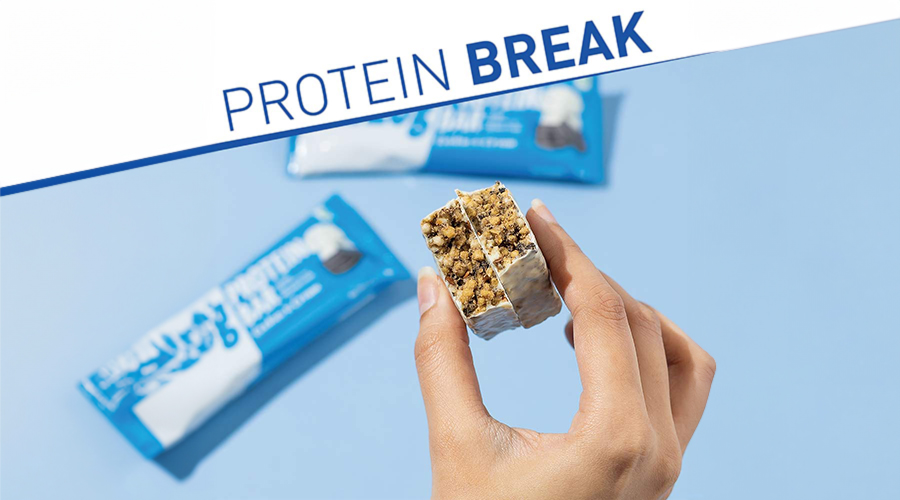Cheat Meals or Cheat Days: What is Better for You?
4 March 2024
Have you been practising clean diets for quite some time? Are you wondering if cheat meals now and then can hurt your diet? Frankly, indulging in the not-so-healthy food options once in a while serves as a motivator. However, it could also turn into a slippery slope derailing the progress in your fitness journey or luring you back into unhealthy eating habits. So, what should you do? Allow yourself a cheat meal here and there or indulge guilt-free for an entire day? Let’s quickly read about the pros of cheat meals, their cons and figure out ways to incorporate cheat knick-knacks strategically into a balanced lifestyle.
Cheat Meal – The Middle Ground
A cheat meal summarises a single indulgent meal in an otherwise healthy eating pattern. It is a quick way to satisfy cravings without hurting diets or derailing progress in a significant way. Let’s take a quick look at the benefits of cheat meals.
Pros:
Mental Relief – Adhering to strict dietary routines, although healthy, could instil a feeling of deprivation and sadness. After all, avoiding delicious food options is harder than you imagine. Thus, allowing yourself a cheat meal once in a while relieves you from feeling down and motivates you to continue with a healthy diet plan.
Metabolic Boost – Did you know that prolonged calorie restriction could slow down metabolism? Well, it is true! Introducing a sudden influx of calories and fats could perk up your metabolism.
A Heartfelt Satisfaction – There’s no denying that enjoying a favourite meal rewards you with a sense of satisfaction and joy. Further, it also promotes a healthier relationship with food instead of a love-hate relationship.
Now that the goods of having cheat meals are all out, let’s discuss the cons of cheat meals too.
Cons:
Overindulgence – A cheat meal could easily spiral into overconsumption of junk and unhealthy foods, leading to setbacks in progress and major guilt. One way to avoid overindulgence is careful planning.
Straying Away From Goals – Unless the frequency and size of cheat meals are moderate to low, it could impede one’s fitness goals and progress in their weight loss journey. This is especially true when cheat meals become an order of the day.
Discomfort in Digestion – Introducing processed and high-fat food after a certain period of clean eating could easily trigger bloating and digestion issues.
That’s mostly about cheat meals. Aren’t you curious to know if a cheat day is a better alternative to junk meals? Let’s read:

Cheat Days – The Duble-Edged Sword
A cheat day diet implies setting aside an entire day to indulge in whatever food you desire without a trace of restrictions. Frankly, cheat days do offer a better and more substantial indulgence, but they also come with their pros and cons.
Pros:
Freedom – Knowing that you have a designated day to chow down anything and everything gives you a sense of freedom and flexibility. It lets you enjoy social occasions without any guilt or restrictions.
Metabolic Flexibility – Switching from periods of strict dietary adherence to indulgence reduces the chances of metabolic adaptation. Instead, it uplifts a robust metabolism over time.
Psychological Boon – A cheat day serves as a mental reset. It takes out the feelings of guilt and anxiety when indulging in the not-so-healthy food options.
Cons:
Risks of Binge Eating – A full day of unrestricted eating could tempt you to kick off binge eating behaviour. This means you fall into the trap of consuming excessive amounts of food in shorter periods. Results? You undo the weeks of dietary goods.
Negative Health Effects – After a prolonged time of restricted and healthy eating, a gush of unhealthy foods in one day could suddenly cause blood sugar spikes, inflammation and the risks of chronic diseases.
Disruption of a Healthy Routine – Unfortunately, a sudden break from healthy eating habits makes it hard to beat overindulgence and challenging to return to balanced diets.
Now that the pros and cons of cheat meals and cheat days are revealed, understanding how to incorporate the practice strategically is important.

Strategic Incorporation into a Healthy Lifestyle
Cheat days or cheat meals – which approach is better for you? The answer typically relies on your individual preferences, goals and relationship with food. Let’s share a few tips to incorporate cheat food habits into your lifestyle.
1. Plan in Advance – Cheat meals or a day of indulgence, when you plan your diet, it gets easier to establish a balance. Choose the kind of foods you genuinely enjoy and savour them mindfully. It is way better than mindless hogging.
2. Moderate Your Portions – Don’t use your cheat day as an excuse to binge eat excessively. Pick up on your body’s hunger and fullness cues. Do not overfill yourself.
3. Consistency is Everything – Occasional indulgences are good once in a while. It enhances one’s relationship with food and a healthy lifestyle. However, prioritizing nutritious and whole foods is always a good idea.
4. Monitor Your Progress – Pay close attention to how your body responds to cheat meals and cheat days. If they’re hindering your progress or making you feel unwell, it might be suitable to change your approach or reduce the frequency of junk eating.
To Conclude:
Whether you are more akin to cheat meals or a designated day of binge eating all things unhealthy, moderation and mindful planning are key. There’s no one answer to what’s better. Instead, try and find what works best for you and your body to enjoy your journey to a healthier and happier you.









 100% Safe & Secure payments:
100% Safe & Secure payments:




